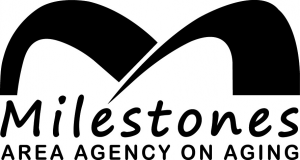May 28, 2019
Grow Your Awareness of Elder Neglect
 By Becky Passman
By Becky Passman
Milestones AAA CEO (Interim)
And:
Kristine Skinner
Milestones AAA
Adult Rights Specialist
In 2006, June 15 was established as World Elder Abuse Awareness Day to promote a greater understanding and raise awareness of the cultural, social, economic and demographic factors which impact elder abuse and neglect. Elder abuse comes in many forms: physical, emotional, financial, and sexual abuse. For many, “neglect” conjures up the image of a child: alone, hungry, dirty, invisible and without value. We, as a society, do not often associate neglect with our senior
population, but the correlation between child neglect and elder neglect is an apt comparison.
There are two types of elder neglect: physical neglect and self-neglect. The National Adult Protective Services Association (pg.1, 2019) defines physical neglect as the “failure to attend to a person’s medical, hygiene, nutrition and dietary needs…dispensing medications, [denying] bathing, grooming, dressing, or failure to provide ample food to maintain health.” Self-neglect is defined as “seniors or adults with disabilities who fail to meet their own essential physical, psychological or social needs which threaten their health, safety, and well-being (pg.1, 2019).”
Elder neglect, along with other types of abuse, is systemic and of epidemic proportions. The World Health Organization estimates that 1 in 6 adults age 60+ will experience some type of abuse, with more than half of that being neglect.
Victims of abuse or self-neglect are typically hesitant to report the abuse or ask for help. Factors involved can include psychological manipulation and/or the fear of negative consequences upon family or other interpersonal relationships. Seniors are also often unwilling or hesitant to ask for help when suffering from neglect or self-neglect, due to fear of being moved into a nursing facility and the loss of independence.
What can you do to help prevent elder abuse and neglect? According to the National Center on Elder Abuse:
- Learn the signs of abuse and be watchful – if you suspect something is wrong, call Milestones at 855-410-6222 toll free for guidance and help. * Prevent isolation by calling and visiting loved ones.
- Talk to others about the issue, self-educate, and help grow awareness.
- Sign up to be a friendly visitor to homebound seniors, or volunteer to deliver meals.
- Write a letter to the editor about the issue of elder abuse.
Together we can help prevent elder abuse/neglect and provide the dignified safety and security our older adult population deserves.
Becky Passman is interim CEO at Milestones AAA. Kristine Skinner is Adult Rights Specialist at Milestones AAA.
For more information contact Becky at (563) 324-9085 or bpassman@milestonesaaa.org.
Filed Under: Community, Family, Health & Wellness
Trackback URL: https://www.50pluslife.com/2019/05/28/grow-your-awareness-of-elder-neglect/trackback/


